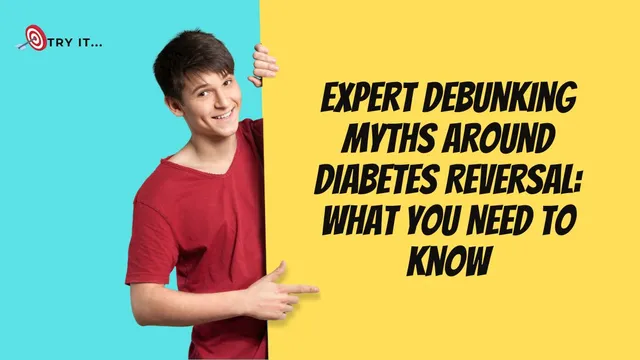- By Priyanka Munshi
- Thu, 14 Nov 2024 02:34 PM (IST)
- Source:JND
World Diabetes Day 2024: Diabetes remains one of the most prevalent chronic diseases, affecting millions of people who manage this condition daily. In recent years, there has been growing discussion about the potential to reverse Type 2 diabetes through lifestyle changes, particularly diet and exercise. However, this topic has also given rise to several myths and misconceptions. This post takes a closer look at what is meant by diabetes reversal and addresses common myths surrounding it.
Diabetes can be managed or reversed through lifestyle changes like a healthy diet, regular physical activity, and weight loss. Studies like the Diabetes Remission Clinical Trial and The Look AHEAD show that significant weight loss and a nutritious diet can normalize blood sugar without medication. Reversal does not guarantee a cure, but can reduce or eliminate medication needs. In a conversation with Jagran English, Anoop Gupta, one of India’s leading Holistic Diabetes Reversal Coaches, a Mental Wellness Expert, and the author of the Amazon best-selling book Medicine-Free Life, and the Founder of Diabefreelife, shared his insights on debunking these myths.
Myth 1: Diabetes Can Only Be Reversed With Medication
A common myth is that diabetes cannot be controlled or reversed without medication. Although medication remains essential for managing Type 1 diabetes and advanced cases of Type 2 diabetes, it is not always necessary for reversing Type 2 diabetes. Many cases of Type 2 diabetes can be managed and even reversed through lifestyle changes — primarily a healthy diet, regular physical activity, and weight loss. Studies such as the Diabetes Remission Clinical Trial and The Look AHEAD study have found that significant weight loss (around 10% or more of body weight), combined with a nutritious diet, is associated with normalizing blood sugar without the need for drugs. It is essential to note that reversal does not equate to a cure. Patients who reverse diabetes must maintain healthy lifestyle habits to sustain low blood sugar levels, but diet and lifestyle interventions can reduce or eliminate the need for medication in many cases.
Also Read: Rising Cases Of Diabetes Among The Youth: Understand The Reasons From An Expert
Myth 2: Diabetes Reversal Takes Place Overnight
Another misconception is that diabetes reversal can happen quickly. Many believe that a few weeks or a couple of months of lifestyle changes are sufficient for full diabetes reversal. However, reversing diabetes is a gradual process that requires persistence and commitment. For Type 2 diabetes, sustained weight loss and regular physical activity, along with improved insulin sensitivity, are generally key factors in achieving reversal. It can take months or even years of healthy living before diabetes can be considered "reversed," though the benefits for blood sugar control often appear within weeks of adopting healthier lifestyle changes.
Myth 3: People With Diabetes Can't Eat Sugar
A widespread myth is that all people with diabetes must completely avoid sugar. While it is true that high sugar intake can spike glucose levels, it does not mean that people with diabetes must eliminate sugar altogether. Moderation and balance are key. Carbohydrates, including sugars, affect blood sugar levels, but they can be included in a diabetes-friendly diet if consumed in moderation. Quality carbohydrates—such as complex carbs from whole grains, legumes, and vegetables—are preferable over refined sugars and processed foods. A balanced diet rich in fruits, vegetables, lean proteins, and healthy fats is generally more beneficial than eliminating sugar alone.
Also Read: Expert Insights On Dispelling Common Myths Surrounding Pneumonia
Myth 4: Diabetes Reversal Applies To Younger People Only
Another misconception is that diabetes reversal is possible only for younger individuals who have not had diabetes for long. While age and the duration of diabetes do impact the likelihood of reversal, lifestyle changes that promote better blood sugar management and insulin sensitivity can benefit people of all ages.

